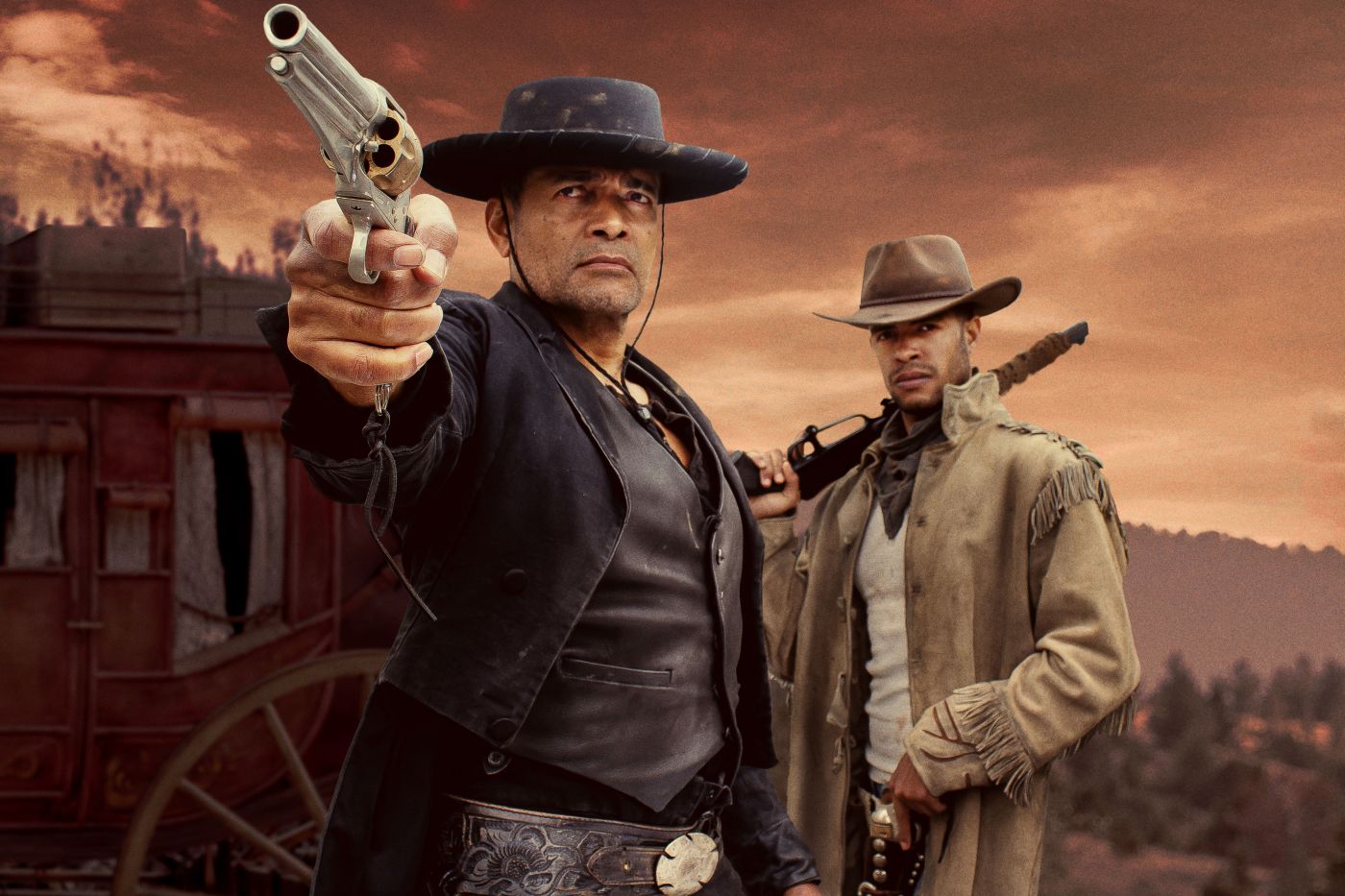
‘Outlaw Posse’ takes familiar road to Old West
Dedicated to “OG bad ass” Melvin Van Peebles, the pioneering Black filmmaker who helped create Black popular cinema in the 1970s, “Outlaw Posse” is a revisionist Western in the style of Jeymes Samuel’s 2021 effort “The Harder They Fall.” Written, directed by and starring Mario Van Peebles (TV’s “Empire”), Melvin’s multi-hyphenate son, the film is a pastiche of several other works, including the “spaghetti Westerns” of legend Sergio Leone, right down to Clint Eastwood’s poncho.
Van Peebles plays Chief, a charismatic gunslinger and former slave who puts together a motley crew to hunt for gold hidden in mountains in Native-American territory. On Chief’s trail is Angel (William Mapother), a long-winded, one-handed lunatic and sadist, who captures the musician wife (Madison Calley) of Chief’s estranged son Decker (Mandela Van Peebles) and forces Decker to ride with his father’s gang as a spy. Also in Chief’s gang of sometime bank robbers are Carson (John Carroll Lynch), who totes a sawed-off shotgun, fast-draw and expert shot Southpaw (Jake Manley, “Infamous”), young gun Jeremiah (Allen Payne, “House of Payne”) and singer-dancer Queenie (Amber Reign Smith).
Also in the noteworthy “Outlaw Posse” cast are Whoopi Goldberg as a real-life character named Stagecoach Mary, the first Black woman to be employed as a U.S. mail carrier, Cedric the Entertainer as the leader of a small Utopian community called Lil’ Heaven and the venerable M. Emmet Walsh (“Blade Runner”) as an old white man named Catfish, who hangs out in bad company.
No, that is not the music of the late genius Ennio Morricone playing on the soundtrack. It is Dontae Winslow. “Outlaw Posse,” which was shot in Montana, is more likely to remind you of better films that it emulates. Chief is reminiscent of Django, the character played by Jamie Foxx in Quentin Tarantino’s 2012 entry “Django, Unchained.” We don’t get much of a backstory from Chief, except vague references to his “owner’s last name.” In opening scenes, Chief encounters rabidly racist gunmen who ridicule and hurl epithets at an unarmed Native-American in a saloon. Chief remarks that the white men are, “ruining his buzz,” in the typically anachronistic language of Van Peebles’ prolix screenplay.
Outside, children play with the bloody parts of a pig.
Angel makes Decker’s wife play Beethoven’s “Moonlight Sonata” while he waves a gun in her husband’s face. Angel’s gang kills an innocent bystander and burns down Decker and his wife’s cabin. When Chief isn’t slinging his gun, he can be seen chugging a Budweiser, the King of Beers since 1876. We run into Jack Johnson, who wasn’t born until 1878. Edward James Olmos shows up as a country store proprietor who has no ammo in stock, but does have a box of… Budweiser. Young bank robbers pretend to belong to the Hole in the Wall Gang of Butch and Sundance fame.
Chief reminds us that almost no one got “40 acres and a mule,” except former slave owners and that former slaves deserve reparations. In fact, he plans to find the gold and distribute it to survivors of slavery and their children. By the time we get around to the weirdly-staged shootout and the father-son reunion at the end of “Outlaw Posse,” we can only wish that the film had more discipline and perhaps less preaching. Oh, and can we get a Stagecoach Mary movie, instead by the way?
(“Outlaw Posse” contains violence, profanity, partial nudity and sadism)
“Outlaw Posse”
Rated R. At the AMC Liberty Tree 20 and AMC Methuen 20
Grade: B

